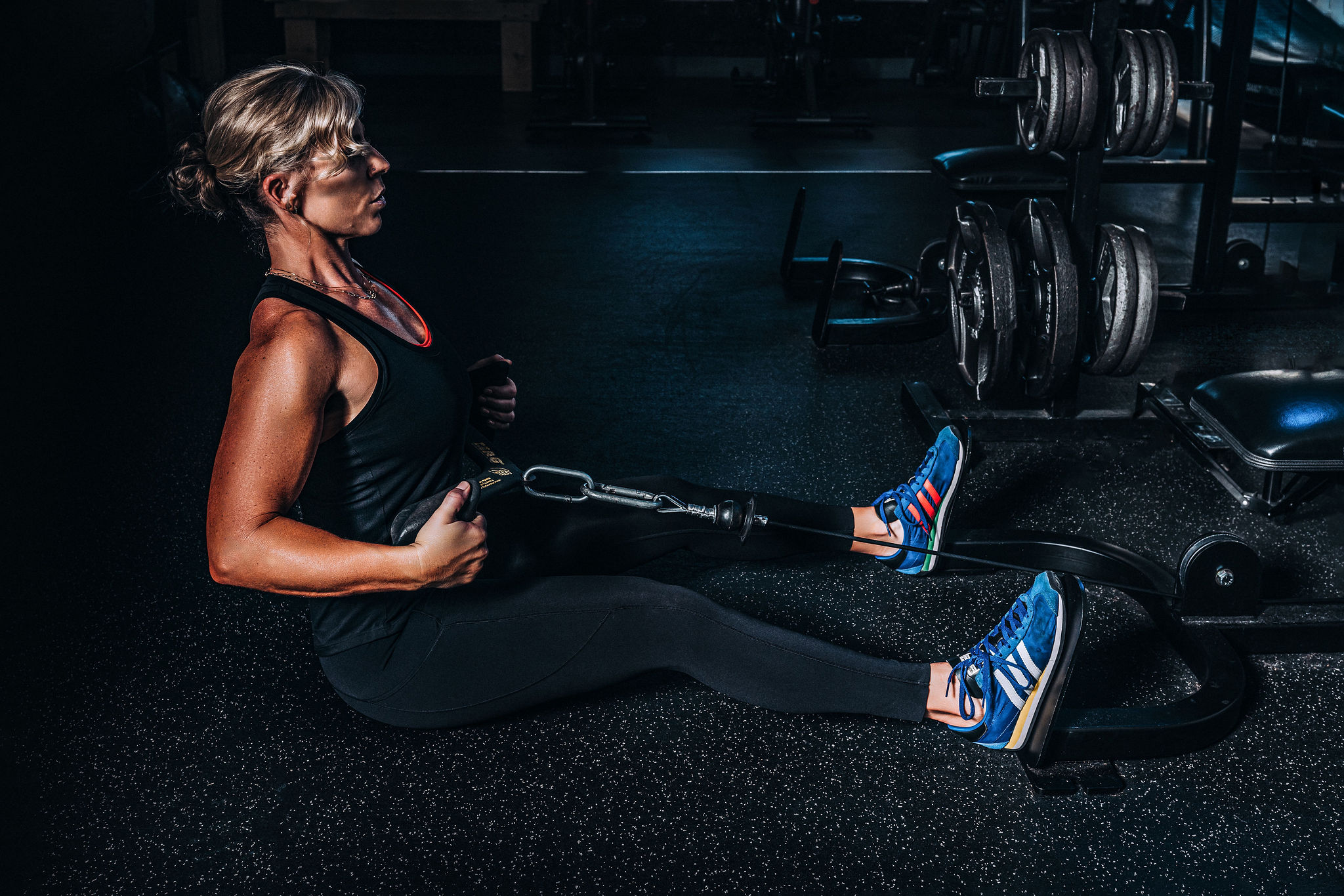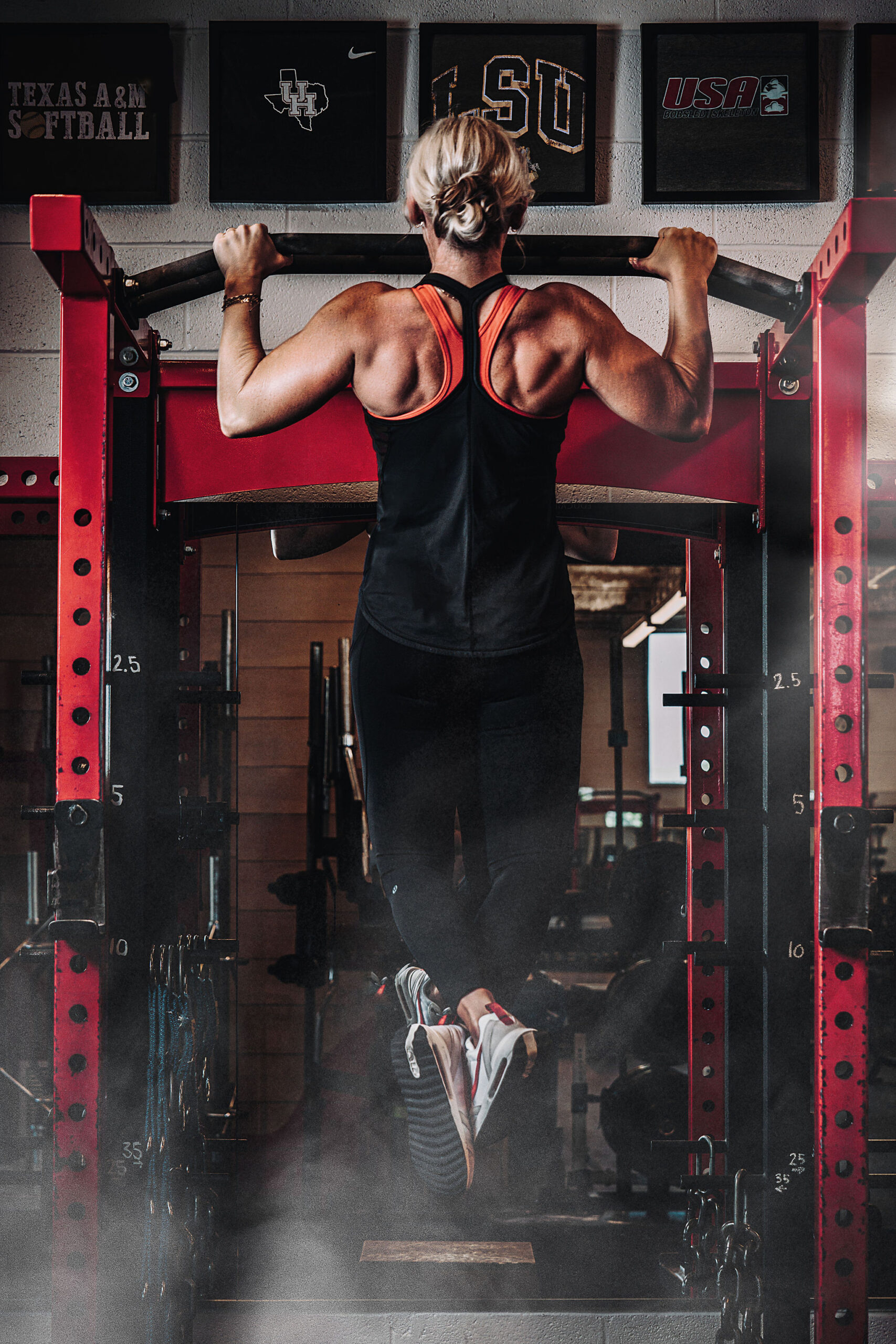Training
Empower your Workouts: How the Menstrual Cycle Influences Your Strength Training Journey
Written by Niamh McWalter
 There are many words we think of when we think of getting our period, and most of the time these are negative in nature, i.e. pain, bloating, crying at a soppy movie on TV. Up to 26% of us have some form of a monthly cycle, and at any one time an estimated 800 million women may be on their period! Periods can make us feel self-conscious about exercising and can make us consider cancelling our session with our trainer. In this blog, I am going to cover training considerations around your period and throughout your full monthly cycle, as well as tips to make it more comfortable for you!
There are many words we think of when we think of getting our period, and most of the time these are negative in nature, i.e. pain, bloating, crying at a soppy movie on TV. Up to 26% of us have some form of a monthly cycle, and at any one time an estimated 800 million women may be on their period! Periods can make us feel self-conscious about exercising and can make us consider cancelling our session with our trainer. In this blog, I am going to cover training considerations around your period and throughout your full monthly cycle, as well as tips to make it more comfortable for you!
The hormone cycle
A “normal” menstrual cycle is 21 to 40 days long, and day 1 of each cycle is the first day of your period. Periods can last anywhere from 2 to 7 days and symptoms can range from mild to severe. If your period is debilitating and stops you from doing normal daily activities, you may need to seek advice from a medical doctor. Following your period, the next phase of your cycle is the follicular phase, where estrogen is the dominant hormone. Around day 14 (of an average 28-day cycle), ovulation will occur. You will then enter the luteal phase, where estrogen drops off and progesterone rises.
For anyone on hormonal contraception, the effects will be different again. You may still experience a bleed (a synthetic period due to the withdrawal of hormones on your pill break) which may have similar symptoms, but your contraception is designed to prevent ovulation and stop the normal hormone interaction from occurring. This will, of course, have different impacts on your training.
So how does this affect your training?
Well, despite influencers commonly claiming you can “hack” your cycle for better results, unfortunately, we do not have enough research on doing this just yet. Leading researcher Dr. Kirsty Elliot-Sale has expressed many times that we do not have enough evidence to support generalised cycle-based training.
We do know the following for sure:
- Your energy (caloric) needs are greater when on your period, and most women will burn an extra 100-200kcals at that time of the month.
- The scales will generally spike by anywhere from 1-10lbs just before and during your period due to increased water retention and inflammation.
- Your core temperature goes up around ovulation, which may lead to you feeling hotter at that time.
 Tips for training on your period:
Tips for training on your period:
- Some women will feel unwell and unable to train during their period, while others (due to increased testosterone) may feel their absolute strongest! Either way, it is important to listen to your body and adapt training if needed. Common ways of doing this are decreasing either the weight or the volume (sets x reps) during your period. You may also feel like your recovery is impaired, so feel free to shorten your sessions or step goals at that time.
- Your energy needs are higher during your period, so have some extra carbs to help fuel your training and your life!
Pro-tip: Track your cycle and symptoms using an app or a calendar so you can see trends in how your body feels at different points of your cycle!
 Tips for training during the follicular phase:
Tips for training during the follicular phase:
- Many women report this as the strongest phase of their monthly cycle, as our feel-good hormones are running high! This might be a time to schedule going for a personal record, or implementing a new programme as your ability to recover will be high!
- Around day 14, ovulation occurs. This can sometimes cause symptoms similar to your period but usually of a shorter duration. Your core temperature may be higher also, so if these factors affect you, this is maybe a time for a gentler session.
Tips for training in your luteal phase:
- Your experience of the luteal phase will often depend on your PMS (premenstrual syndrome) symptoms and duration. PMS can start anywhere from 10 to 3 days before the start of your next cycle and can include symptoms like cramping, bloating, fatigue and nausea. For the rest of the luteal phase, you will generally feel relatively “normal,” but may be slightly more fatigued.
- Like when on your period, the most important thing is to listen to your body and adjust if needed!
In conclusion, it is completely safe and healthy to train hard at every stage of your cycle, but listening to your body and adjusting as needed is encouraged. Don’t be afraid to speak to your trainer about your menstrual cycle – we are professionals after all! And remember – there is currently no evidenced based way to improve your hormones by tailoring your training to your cycle, but we KNOW exercise helps.
Happy training!
If you’re ready for a personal trainer who will create a program that helps you reach your goals, click here to schedule your free consultation and first workout!

